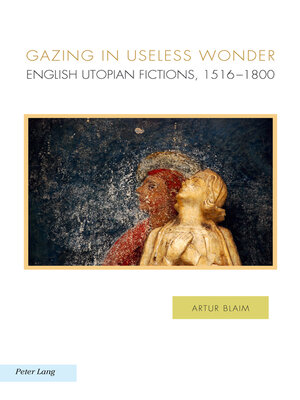Gazing in Useless Wonder
ebook ∣ English Utopian Fictions, 1516–1800 · Ralahine Utopian Studies
By Raffaella Baccolini

Sign up to save your library
With an OverDrive account, you can save your favorite libraries for at-a-glance information about availability. Find out more about OverDrive accounts.
Find this title in Libby, the library reading app by OverDrive.



Search for a digital library with this title
Title found at these libraries:
| Library Name | Distance |
|---|---|
| Loading... |
Gazing in Useless Wonder focuses on utopias as self-referential texts that literally have to constitute themselves as imaginary or intentional entities before they can work as vehicles for socio-political ideas. Foregrounding the construction of utopian fictions defines both the perspective and the differentiation of the analytically significant elements, so that the traditionally dominant topics such as the nature and origins of the ideologies behind the construction of the ideal model are taken into account only insofar as they contribute to the aesthetic effect of the utopian construct as a whole. The organising principle of the early modern utopia involves two different modes of presentation: the narrative frame and the ekphrastic description of the ideal state, each possessing an aesthetic function realised according to different principles, with the ideal image constructed in accordance with the dominant aesthetic norms of the period pertaining to the visual arts, such as harmony, symmetry, alleged perfection, and timelessness. Despite variations, especially in the thematic-ideological domain, the dominant genre pattern that emerged as a result of the simplification of the complex semantics of Thomas More's Utopia in the early modern period is taken here as forming a single synchrony in the history of utopian fiction-making.







